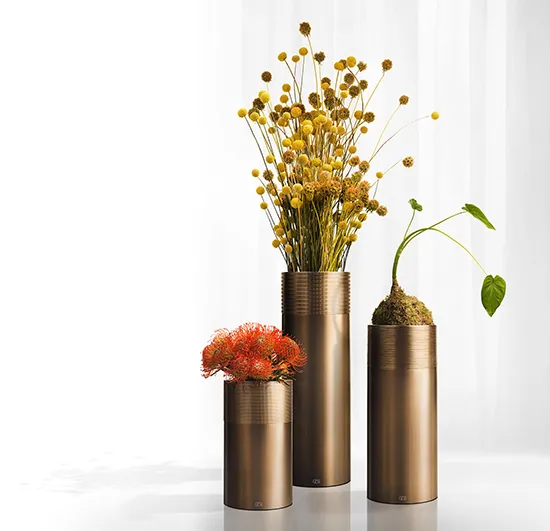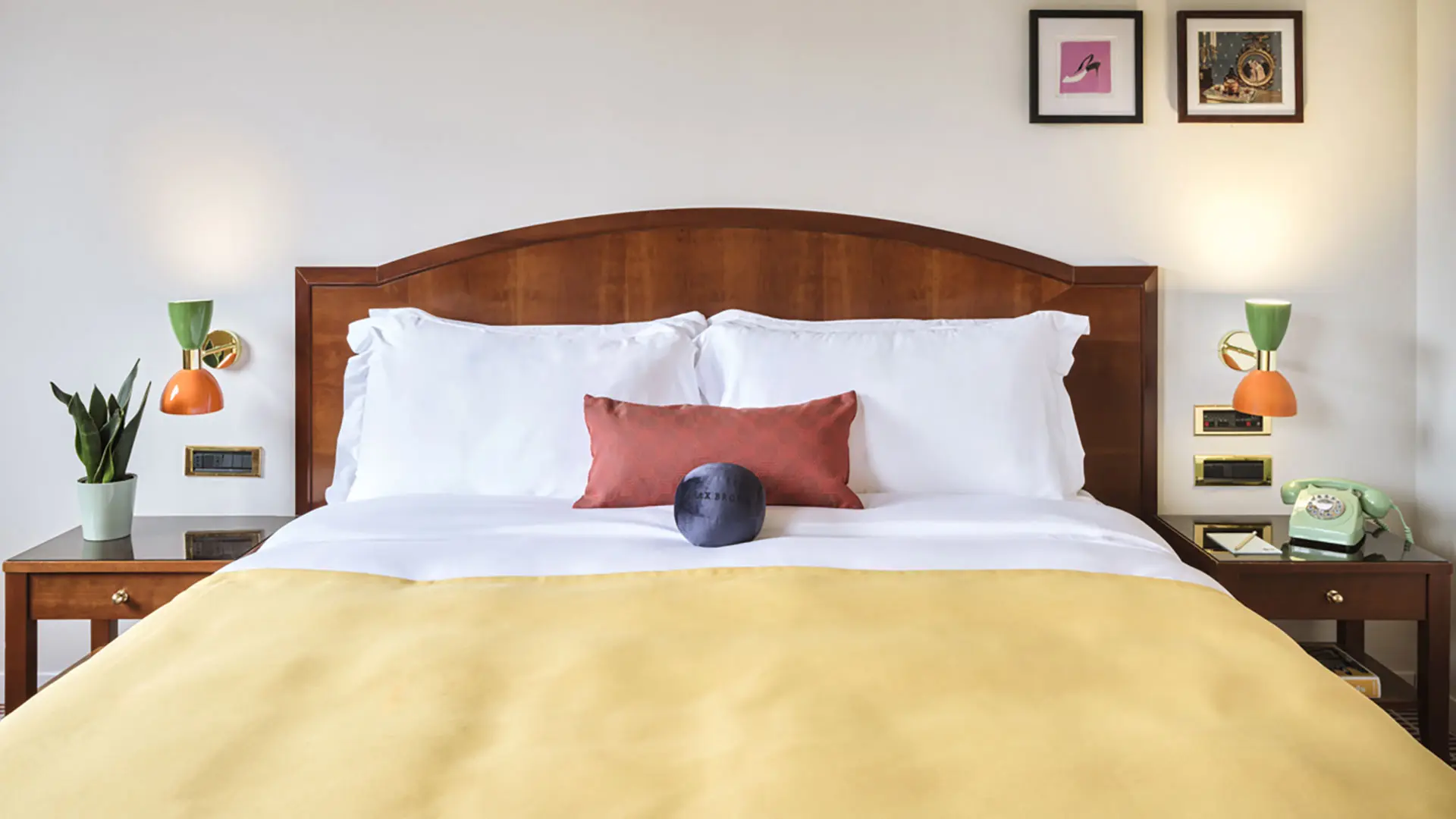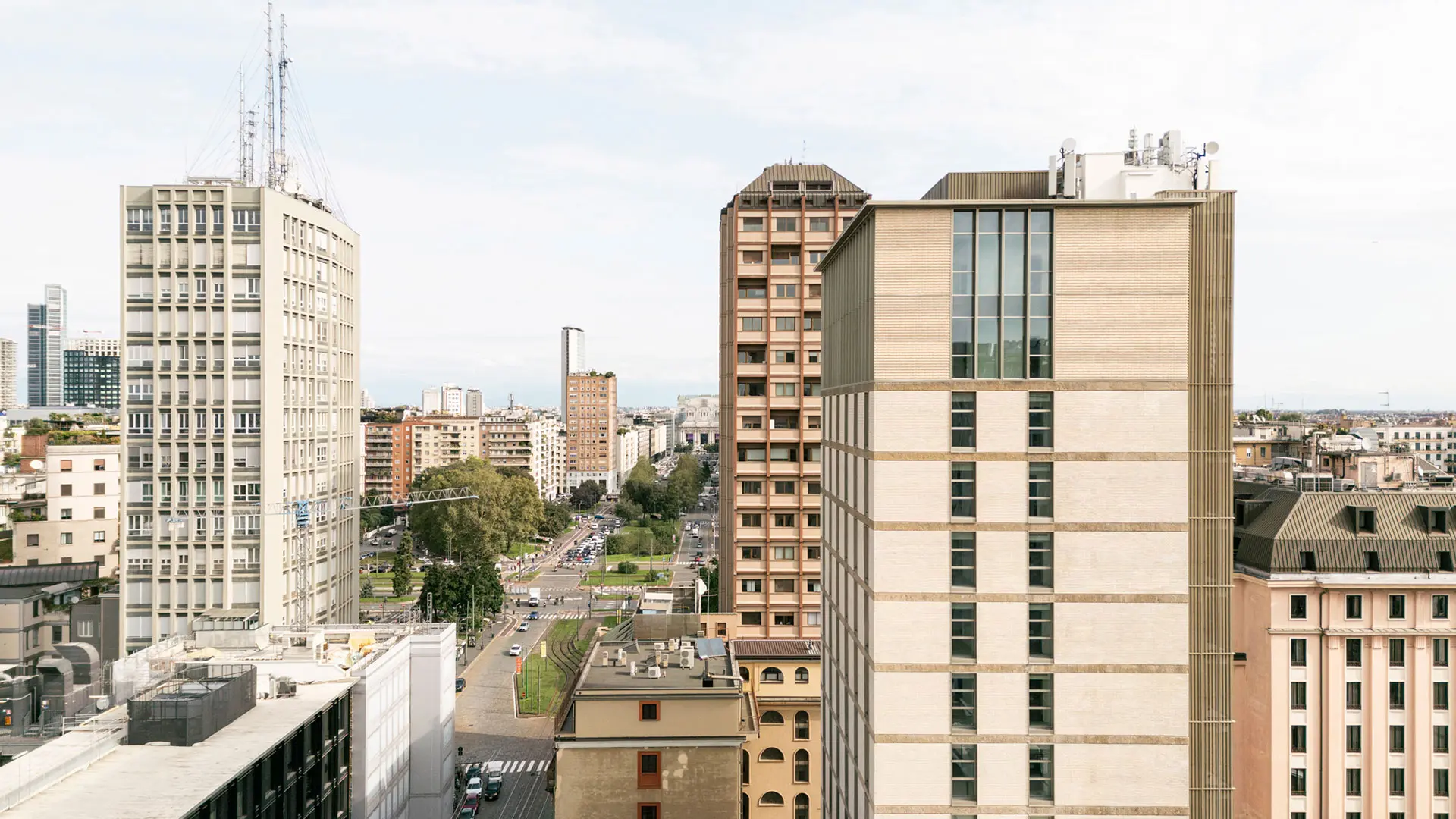In partnership with MiCodmc, a selection of establishments ripe for discovery during the 63rd edition of the Salone del Mobile.Milano, from 8th to 13th April
All forms of metal, at the Salone 2022
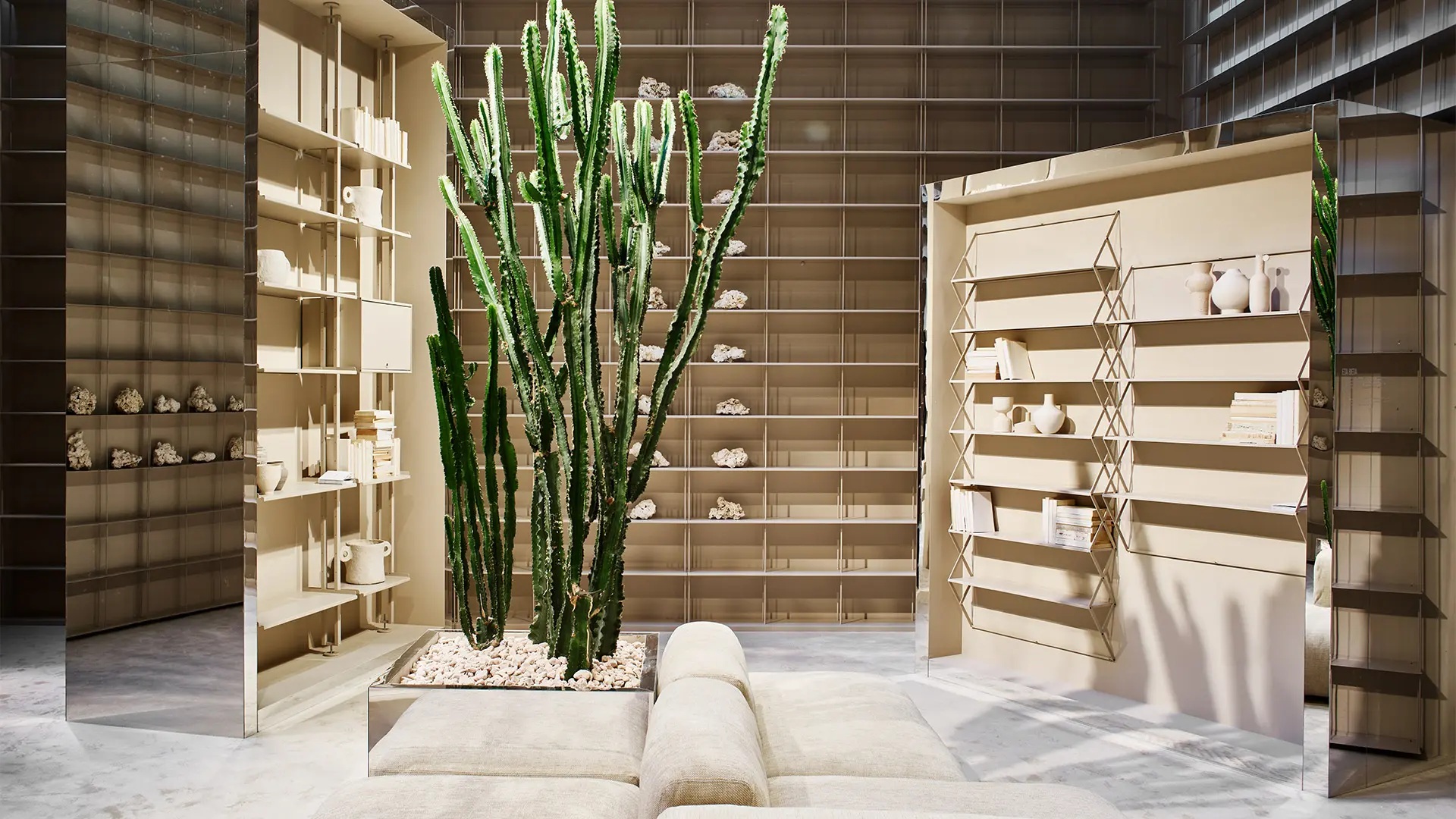
Kriptonite stand, ph. Luca Quagliato
Structural or decorative, lightweight or monolithic, seriously cold or processed: the metal seen in the furnishings at the Salone del Mobile.Milano 2022 is one of the most versatile of materials
Cold, inert and heavy is how we imagine metal to be. However, it’s a material that boasts a great many different properties crucial for producing objects, but which is also often relegated to the status of carcass, for seating and upholstereds perhaps, or as a protective, robust layer in bathroom and kitchen tops, capable of withstanding scratches, liquids and stains.
Metal has huge potential, however, and many of its possible uses derive from its malleability, its flexibility, its lustre and its ability to memorise shapes, and its powers of heat and electricity conduction – constantly changing potential, depending on the alloy being worked. Many of the companies at the Salone del Mobile.2022 opted to trial new forms, new finishes and new possibilities for producing their objects (or some of their components) in metal, testing the skills of their craftsmen and coming up with new aesthetic paradigms.
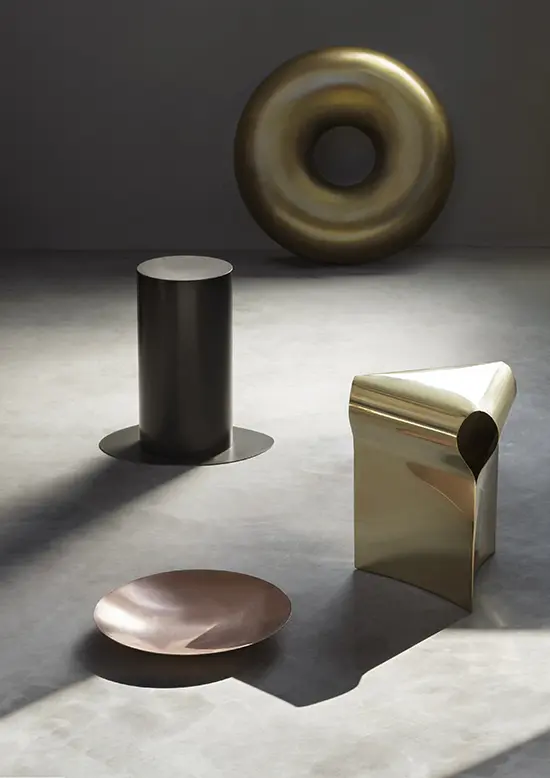
De Castelli, Biomorphic, ph. Alberto Parise
De Castelli, for example, a company based in the Province of Treviso, transforms metals into objects, furnishings and surfaces, and presented its new all-round project Biomorphic, a manifesto for its ongoing desire to experiment with innovative aesthetic and technological solutions, leveraging organic forms obtained through research into late 19th century artisan hammering techniques, actualised in technological processes, going forward. Ambrosia, a brass desk designed by Roberto Nicoletti in the shape of a great ovoid volume, is a stand-out here, a synthesis of the result of the tireless work that goes into creating domed surfaces.
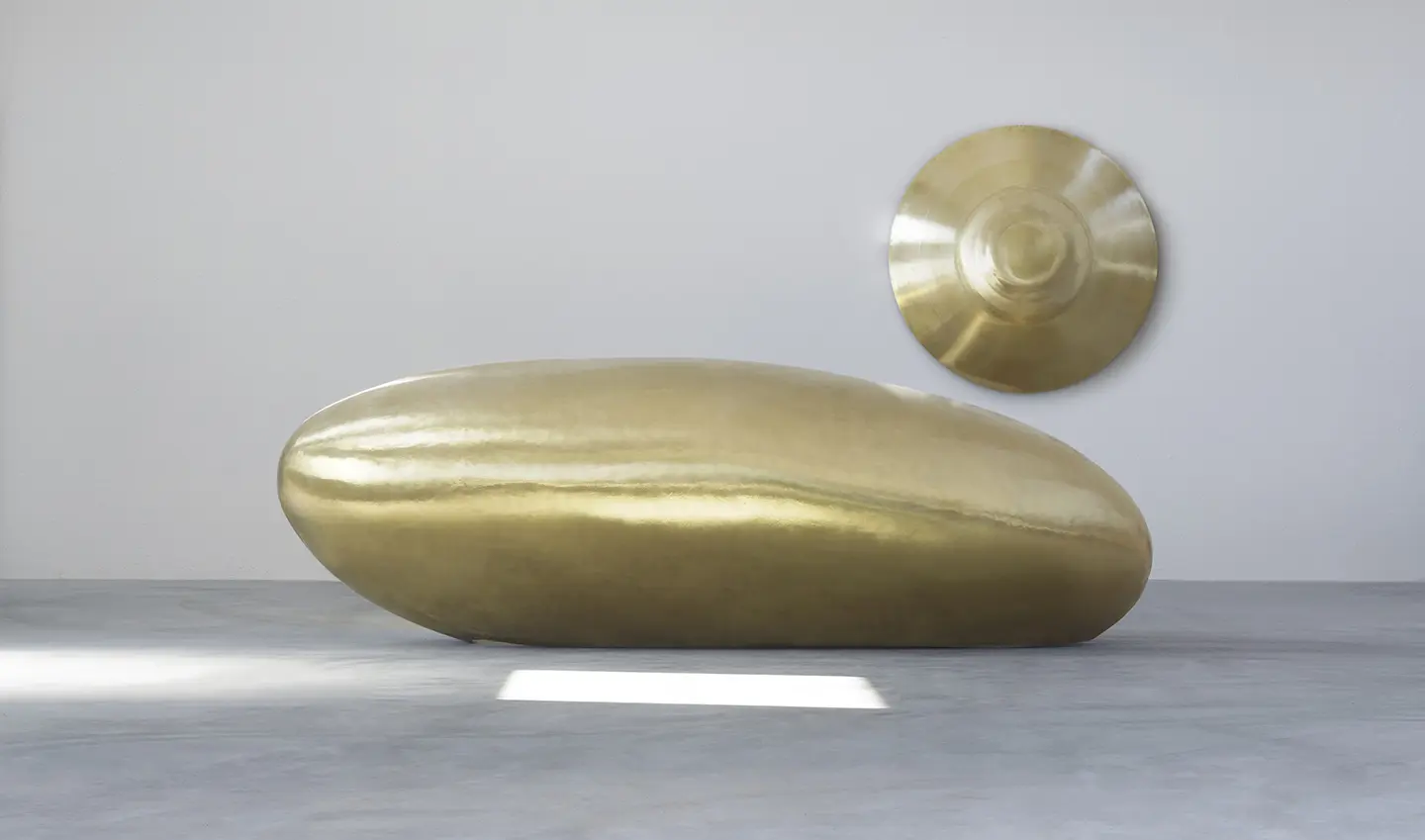
De Castelli, Ambrosia, ph. Alberto Parise
De Castelli also works with iron and copper in all their many variations and finishes. Their stand at S.Project showcased some of the experimental possibilities of these metals with projects by designers such as Luca Pevere, Martinelli Venezia, Elisa Ossino, Zanellato/Bortotto and others, featuring stools, tables, side tables, storage furniture and upholstereds.
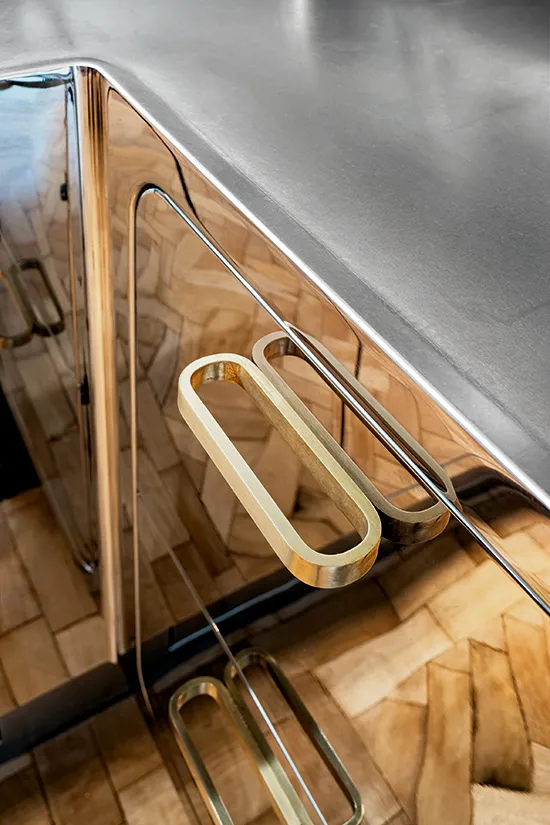
Abimis, Ego, ph. Matteo Cirenei
Abimis, on the other hand, makes all-steel products, and is a home kitchen firm born of the expertise of the Veneto-based company Prisma, which has been producing professional kitchens for the hospitality sector for over 30 years. Abimis kitchens, therefore, are designed for domestic use while conforming to the same technical standards as those that apply to restaurants, with extra-thick, joint-free worktops. What hits you at first glance is the material continuity achieved by the formability of the steel in giving shape to both horizontal and vertical surfaces, available in a range of finishes without any compromise in performance. There’s not even the tiniest hint of a joint in the Ego model, with its hand-brushed top and shiny, almost mirrored, doors, (although, obviously, there is also a choice of surface-mounted or razor-blade or box profile worktops), a detail that sums up the entire realm of Abimis’ skill in processing AISI 304 steel, inalterable, antibacterial and hard-wearing. All their kitchens are bespoke, starting with the two Ego ranges, designed by Alberto Torsello and distinguished by their rounded shapes and striking volumes, and Atelier with its sleek, clean lines.
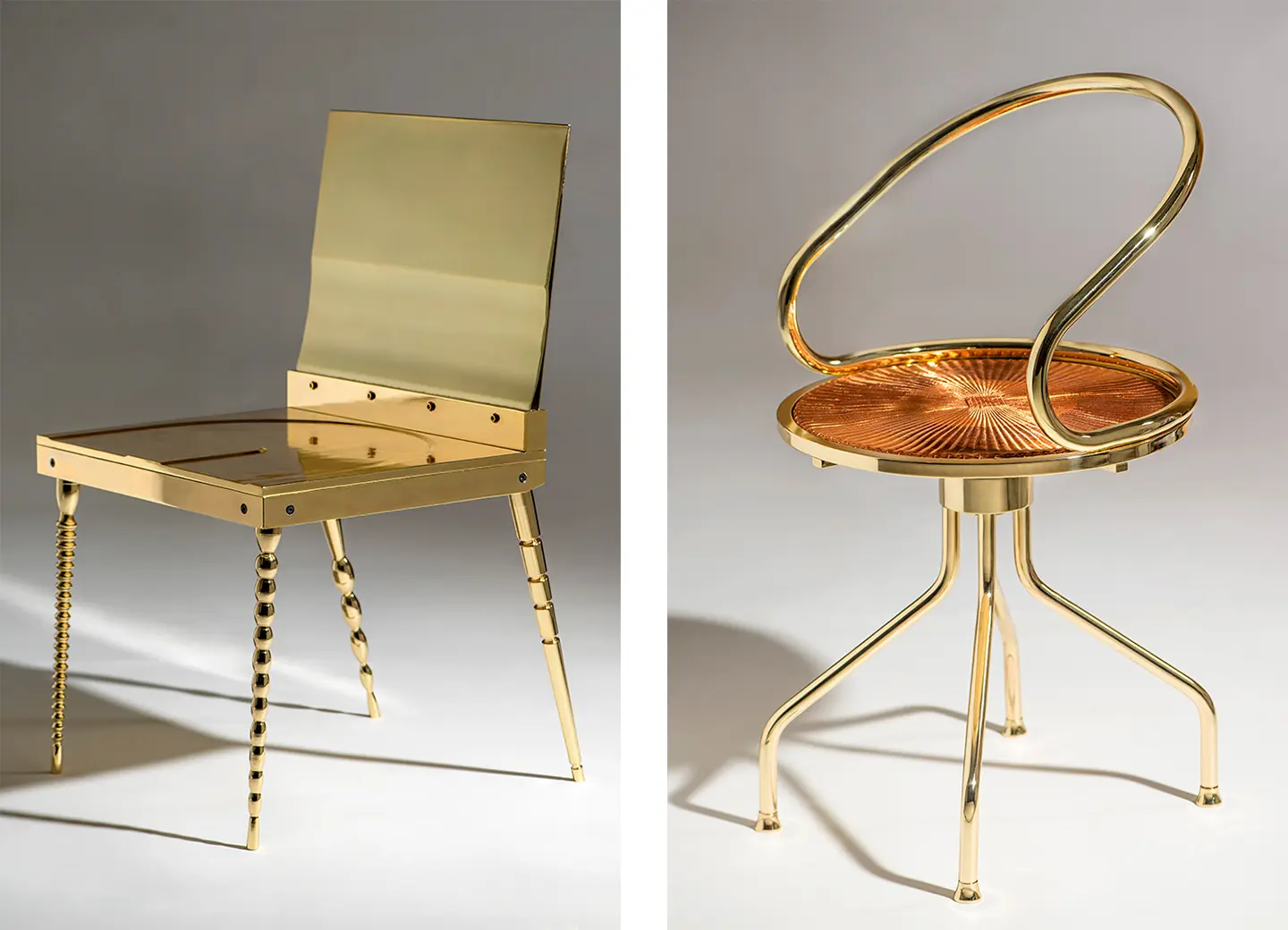
A Lot of Brasil, Michael and Barroca chairs, courtesy photo
Aluminium is another story: this metal was the star of the Kriptonite stand, where its lightness and resistance were leveraged to their full potential – its flexibility was also harnessed by A Lot of Brasil, presenting two chairs designed by Pedro Franco. The first of these, the Michael chair was inspired by the shape of the classic Thonet chair (the first piece to be industrially manufactured in 1902) and designed to be produced through mechanical processes alone, thus simplifying the industrial side of things. The second, the Barroca chair, boasts a calendered aluminium backrest, which moves mechanically in response to ergonomic demands, and four different legs, each decorated in a manner reminiscent of the typical turned Victorian chair legs.


 Exhibitions
Exhibitions
